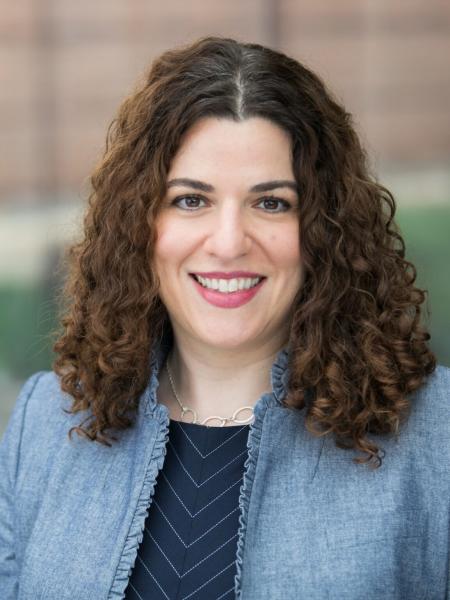American Psychological Association Division 50

“Better Access to Better Care”
My Path to Making Motivational Interviewing Accessible
The cheese starts here – I always wanted to “help people.” And, yet I knew little about what that really meant. I’m a first-generation college student who majored in Psychology and Spanish thinking I would help more people in their native language. Franklin and Marshall College taught me the power of behavior science – every class I took, including Intro to Psych, had a lab component. The research aspect helped gear me towards wanting a PhD in Psychology so I could contribute to the science. So, I headed to the University of Pennsylvania in Philadelphia to post-bac as a Project Director at the Treatment Research Center. I managed NIDA and NIAAA randomized controlled research studies for substance use disorders and comorbid conditions (like depression and stress/anxiety). Part of my role was to interview patients to gather data for their therapists to use in treatment sessions (and in research analyses), including motivational enhancement therapy (MET; Miller 1992), a structured treatment based on Motivationational Interviewing (MI). The feedback served as a nonjudgmental mirror for the patients. Not only did I meet with patients and create feedback sheets, I also listened to recordings of therapists delivering those sessions, assessing adherence to the therapeutic protocol (not being nosy!)… What I heard and observed in those sessions was paradigm-shifting. Therapists did not confront patients - no proverbial “talking some sense” into them. They did not scare or shame them into change. No “You are ruining your life… you are going to die…” Not even “You’re hurting your loved ones and yourself.” They did not tell them what to do (or not to do) or how to do it (or not do it). They were supportive and collaborative and allowed patients to move at their own pace, reflecting with them on the data in their reports and empowering them to make choices that were consistent with their values. The therapists would also validate a patient’s experience - “It makes sense that this hard” - and helped guide them to what was important to them - “You care about being a good parent and drinking alcohol doesn’t fit with that.”
And it worked! All of a sudden patients were responding with insights and observations about their data. They were marching towards the change that mattered to them because they were inspired from within, by their own reasons for change—which their therapists had worked with them to discover—and not because someone was coercing them. It felt like magic! Patients would share with me their enthusiasm and you could see it on their faces - they were inspired, engaged, and motivated. It was the opposite of the interventions you see on TV and there was no confrontation; it was simply collaboration, working together. I knew almost immediately that not only did I want to help people but I wanted to help people like that. It was as much about the process - the how - as it was about the what.
So, I selected a graduate program that supported evidence-based substance use treatment research (Rutgers, The State University of New Jersey) and then completed internship and postdoc at University of California, San Diego/San Diego VAMC, which all led me back to where I started - on faculty at the University of Pennsylvania doing some of my own research and then got to design and lead a national Motivational Interviewing/Motivational Enhancement Therapy training program in the Department of Veterans Affairs (the largest ever in the world to date and one that is still going strong) teaching other fine clinicians across the country how to use MI skills in their work (Drapkin et al. 2016).
And now, I do a strategic smidge of all of the above. I own/run the Cognitive Behavior Therapy (CBT) Center based in good old New Jersey (and serving patients via telehealth across the country), consult in the Behavior Science and health tech worlds, deliver health and wellbeing workshops, produce accessible content (check out my LinkedIn profile), and support Motivational Interviewing training and dissemination, including publishing my first sole authored book with New Harbinger Publications (Drapkin, 2023).

Resources are available for those struggling with addiction and numerous effective treatments exist. Whether you are looking for help for yourself or a loved one, we encourage you to seek out help.